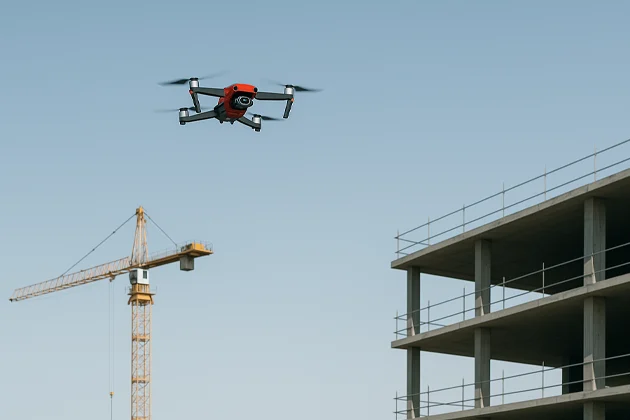The construction industry faces increasing pressure to meet environmental compliance standards. Utilizing data analytics can transform how stormwater pollution is managed at construction sites. By harnessing technology, construction firms can achieve significant improvements in regulatory adherence.
As the need for sustainable practices grows, environmental compliance has become a critical focus in the construction industry. With regulations becoming more stringent, companies are turning to innovative solutions to ensure they meet required standards. Leveraging advanced analytics can significantly enhance environmental outcomes and operational efficiency.
The role of data analytics in construction
Incorporating data analytics into construction projects offers substantial benefits for monitoring stormwater pollution. These approaches provide detailed insights that help identify potential issues before they escalate into significant problems. By analyzing vast amounts of data, construction managers can pinpoint specific areas where pollution levels are above acceptable thresholds and take timely corrective actions.
Data-driven approaches facilitate better decision-making, enabling proactive management of environmental compliance. They also allow for real-time monitoring, which is crucial for maintaining adherence to regulatory requirements. By using predictive analytics, construction companies can forecast potential environmental impacts and implement preventive measures effectively.
The integration of advanced data analytics tools has revolutionized how environmental compliance is approached in the industry. These tools offer precise metrics and reports that are essential for demonstrating compliance to regulators and stakeholders. The ability to present quantifiable evidence of compliance not only satisfies regulatory demands but also enhances the company’s reputation as an environmentally responsible entity.
Technological advancements in stormwater management
Modern construction sites are increasingly leveraging digital tools for efficient stormwater monitoring and management. Technologies such as IoT sensors and drones provide real-time data collection, offering a comprehensive view of site conditions at any given moment. These technological advancements enable construction teams to respond swiftly to any detected anomalies.
The role of technology extends beyond mere monitoring; it streamlines the entire compliance process. Automation of data collection and analysis reduces the time spent on manual tasks, allowing teams to focus on strategic planning and execution. This efficiency translates into better resource management and cost savings.
Technological integration also supports effective communication among stakeholders, ensuring everyone is informed about site conditions and compliance status. Collaborative platforms facilitate the sharing of data and insights, fostering a coordinated approach to managing stormwater pollution risks.
The impact of specialized services
Specialized services are crucial in helping construction firms implement effective stormwater management strategies. These services offer expertise that guides companies through complex regulatory landscapes, ensuring all aspects of compliance are addressed. By providing tailored solutions, these services enable firms to adapt to specific site conditions and challenges.
For example, in Texas, where environmental regulations and site conditions can vary significantly across regions, local stormwater compliance services have begun to adopt advanced data analytics to support construction firms. These providers not only assist with navigating complex regulatory requirements but also offer predictive tools that help anticipate and mitigate stormwater pollution risks.
Texas SWPPP services exemplify how regional expertise, when combined with data-driven technologies, can enhance both compliance efficiency and environmental outcomes. By tailoring solutions to the specific challenges of each project site, these services empower construction firms to maintain high compliance standards while optimizing operational performance.
The value of partnering with experts lies in their ability to provide innovative solutions that align with regulatory expectations while enhancing operational effectiveness. These partnerships empower construction firms to focus on their core activities, confident that their environmental responsibilities are managed proficiently.










